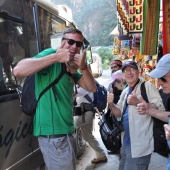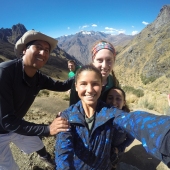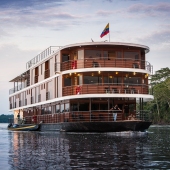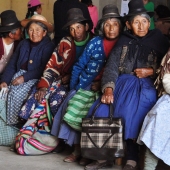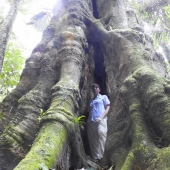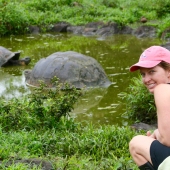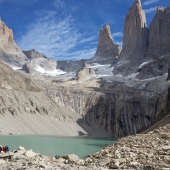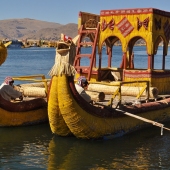We were high. Really high. Lake Titicaca
(continued from PREPARING TO HIKE)
Not that kind of high! This was a "real" high. The kind that blows your mind in a different way. The kind that makes you more connected with the planet you live on. The kind that makes you wonder how people have survived in so many different environments for centuries.
This trip was an anthropologist's dream come true. I have a confession to make. When I go anywhere, it's the people I notice the most. I love to find out how they do things. Not just mechanical things. I'm curious about their relationships, their social interactions. How they solve their problems and how they relate to their different natural environments.
Peru was the perfect destination for this kind of observation. While working towards my degree in (no surprise here!) Cultural Anthropology, I 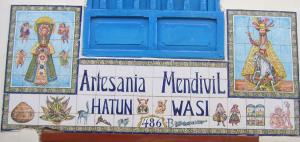 heard stories about anthropologists who would stay with tribes or communities in an effort to document their traditions and cultural practices.
heard stories about anthropologists who would stay with tribes or communities in an effort to document their traditions and cultural practices.
One of the most recognized is Margaret Mead, who spotlighted the coming-of-age practices of young people in Samoa. With the rise of feminism, Mead's writings contributed to a sexual revolution that would forever change the fabric of American culture. The sexual revolution changed everything folks! Who works. How we work. Where we work. Who takes care of the children. What happens to those children while they're cared for. How we spend our money. How we save. Who gets credit. Who gets jobs.
In 1978, (or maybe 1979?) I was one of 8 women who were the first ever females to be recruited as cadets training to be Troopers for the Ohio State Highway Patrol. This was a historic first in the state. Women had never done that. They worked in the offices or ran the radios, or at the very most, (according to my father, the cop) they were matrons who searched women's butts in prisons. But they were not allowed to patrol the streets in uniforms. They were certainly not seen as equals with men by most of the male troopers or by the public.
To me, this is incredibly important stuff. As a society looking at the time lines of well-known historical events and analyzing the strategic accomplishments of kings, presidents and renowned leaders, we need to look at our underlying social structures. How societies controlled by men manipulate natural resources and the difference between how men and women solve problems seems critical to understanding why things turn out the way they do in our communities.
This is what was going through my rattled, altitude-stricken brain when the door of the plane flung open and the oxygen-deprived air trickled into my lungs when we arrived in Juliaca at 12,500 ft above sea level. Vidal and a couple of friends were there to greet us and take us to Puno, on the shores of Lake Titicaca. I immediately kicked into observation mode as I tried to absorb the many sensations bombarding my psyche as well as my physical body. (continued: Peru: LIfe In The Sky)
Ready to book your adventure trip to Peru? Contact our US office.


